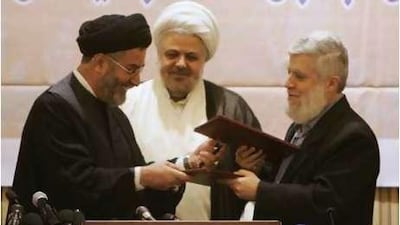Lebanese prime minister Fouad Siniora will visit Iraq this week to promote diplomatic and trade ties, according to the government, in a sign of improving ties between Baghdad and the Arab world. The trip will be the first by a Lebanese prime minister since the US-led invasion of Iraq in 2003. It's an indicator of the apparent increasing willingness of Arab countries to re-engage with the government in Baghdad.
King Abdullah of Jordan visited Iraq on Aug 11, becoming the first Arab head of state to do so since the invasion toppled former President Saddam Hussein. "Iraq is an Arab country and it is very necessary to open up to it at this moment," Siniora told Lebanon's al-Mustaqbal newspaper. The US government has urged Iraq's Arab neighbours to do more to embrace Baghdad, whose Shiite-led government has voiced concerns over the treatment by its Sunni-led neighbours.
Siniora, a Sunni politician who has Saudi support, heads a new Lebanese national unity government which includes Hizbollah, a powerful Shiite group backed by Iran. He said his talks would cover energy and trade co-operation. The trip follows a visit by senior Lebanese politician Saad al-Hariri, who met Iraqi prime minister Nuri al-Maliki in Baghdad last month. Also announced today was the signing of a peace accord by Hizbollah and local Sunni factions in a push to defuse sectarian tension.
More than 100 people have died in sectarian fighting in Lebanon so far this year, with today's agreement prohibiting any Muslim group from attacking fellow Muslims. It was signed by Hizbollah and some Salafist groups who are followers of a radical form of Sunni Islam. Many Salafists - whose name comes from the Arabic word for ancestors - reportedly consider Shiites as heretics. This year has seen Lebanon's worst sectarian violence since the 1975-90 civil war, with street battles in Beirut, its suburbs, the central mountains and the northern city of Tripoli. * Staff with Reuters/AP

